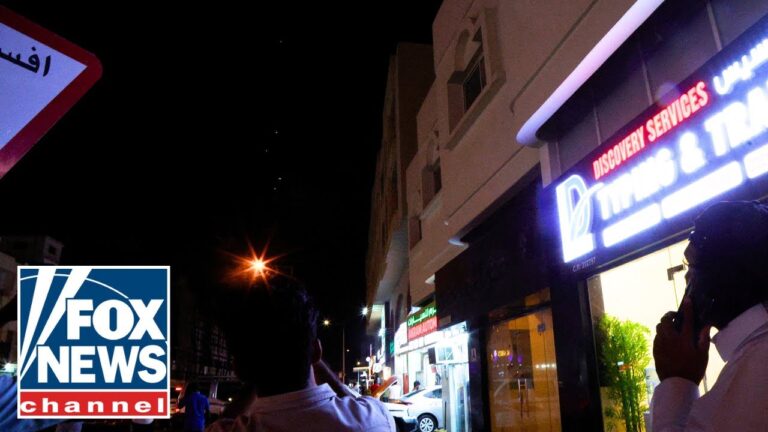Video at the bottom!
In a tense and evolving situation, reports indicate that six ballistic missiles have been launched from Iran, targeting locations within Qatar, specifically near the largest U.S. military base in the region. This base, positioned roughly 40 miles from the capital, has become an epicenter of concern as explosions have been heard emanating from the area, leading to fears regarding the safety of U.S. personnel stationed there.
Jennifer Griffin, the Chief National Security Correspondent at the Pentagon, provided insights based on both open-source information and intelligence reports. The potential escalation stems from apprehensions surrounding Iranian capabilities, with indications that the missiles fired are sophisticated enough to pose a significant threat to both military and civilian targets.
As the situation unfolds, there have been strategic warnings issued to U.S. embassy staff in Qatar and other regions, advising them to shelter in place. The U.S. military presence in the area, which typically includes around 10,000 troops and numerous transport planes, raises further questions about the implications of such missile strikes, especially in light of previous encounters with Iranian forces.
The airspace over the United Arab Emirates, home to another significant U.S. military base, has reportedly been closed as precautionary measures are put in place. Griffin noted the historical context of missile threats from Iran, recalling a series of incidents from recent years that have heightened the urgency of preparedness among U.S. forces.
Amid the ongoing developments, the nature of the Iranian missile system, which has been characterized by its precision, underscores the potential risk not only to military installations but also to civilian infrastructure. The U.S. military, particularly U.S. Central Command, has been proactive in bolstering air defenses in anticipation of such threats, fully aware of the precarious position their forces occupy in the region.
As the situation continues to escalate, the international community watches closely, with questions regarding the stability of U.S. relations in the Gulf region and the broader implications of Iranian military actions.


